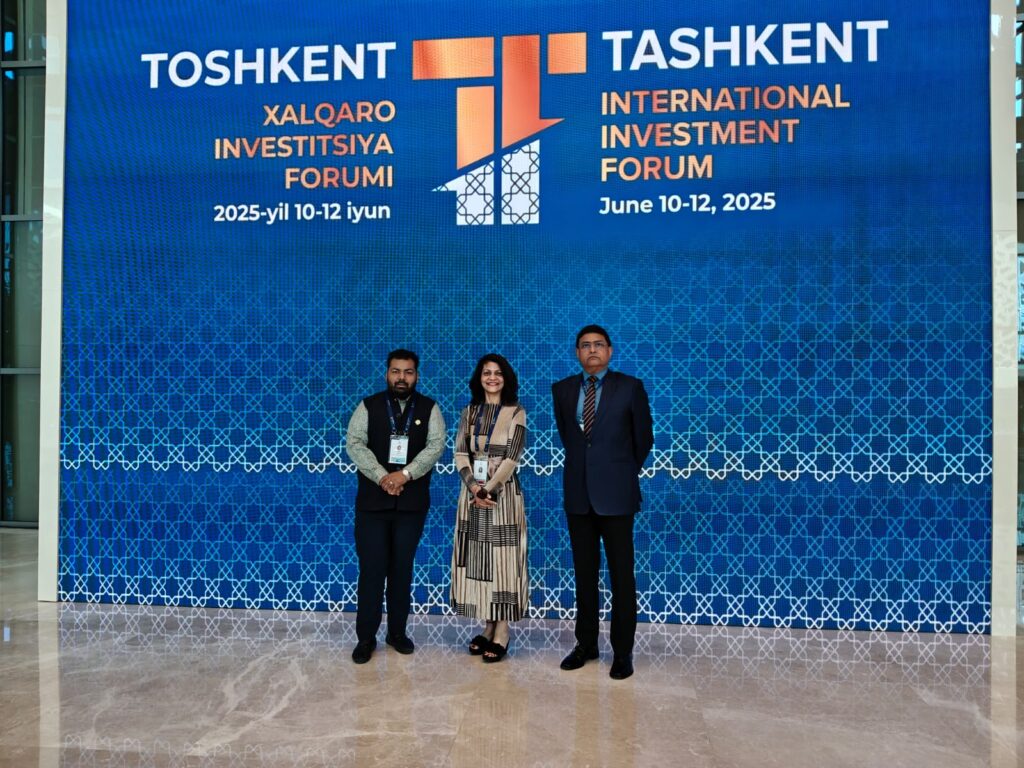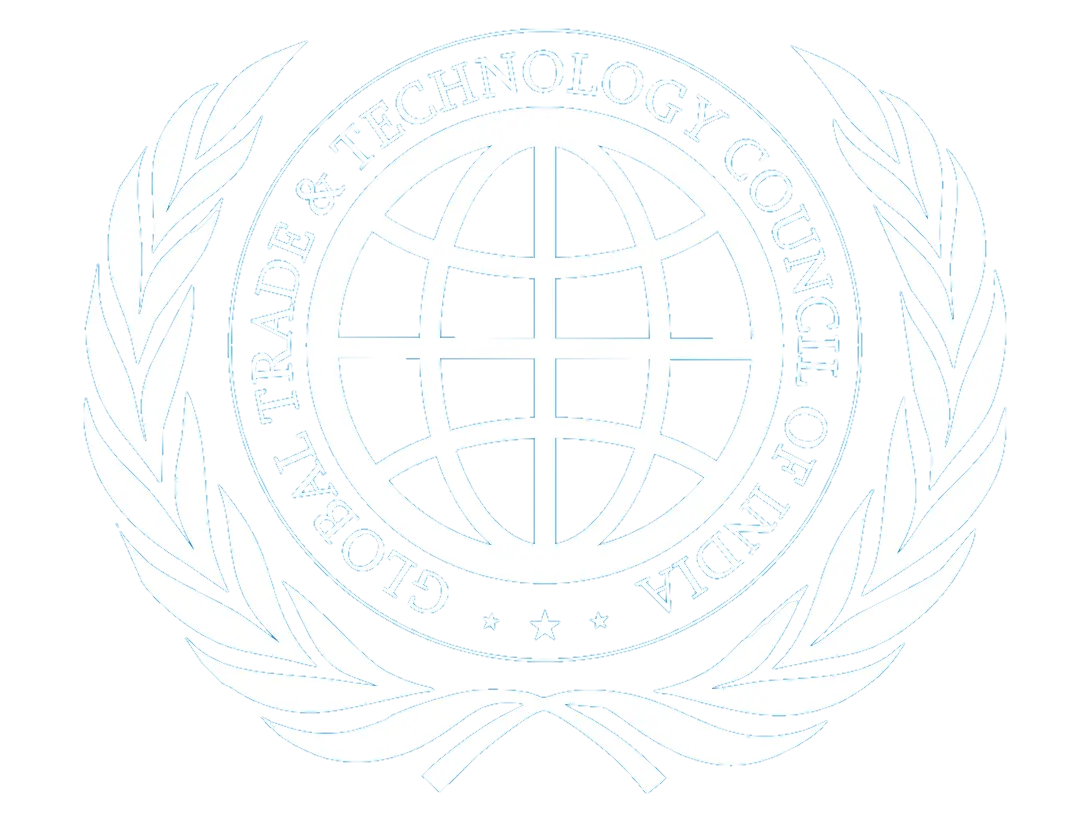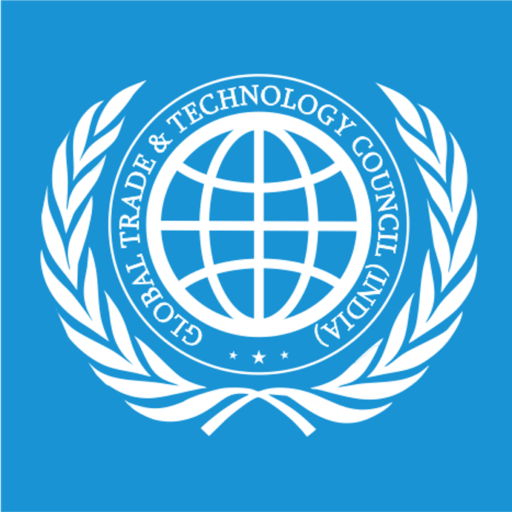GTTCI Unlocks Multisectoral Growth Through Strategic Engagements and MoUs in Uzbekistan

Uzbekistan’s Grand Ascent in Global Investment: A New Chapter in Central Asian Diplomacy
The Tashkent International Investment Forum (TIIF) 2025, held from June 9 to 12, marked a defining moment for Uzbekistan’s trajectory as a rising regional powerhouse. This fourth edition of the forum attracted over 8,000 participants, including nearly 3,000 international delegates from 97 countries, signaling the country’s growing allure in the global investment landscape. The scale and scope of this forum were unprecedented—with $30.5 billion in investment contracts and trade agreements finalized, representing a significant 14.6% increase from the previous year and nearly tripling the figure from just two years ago.

Tashkent has successfully positioned itself as the epicenter of new economic diplomacy in Central Asia. Under the reformist leadership of President Shavkat Mirziyoyev, the nation is advancing on multiple fronts—from energy transition and infrastructure development to digital transformation and regional connectivity. At the heart of this international convergence was the active participation of the Global Trade & Technology Council (India), led by its Chairperson, Dr. Rashmi Saluja, accompanied by Chief Advisor, Mr. Rakesh Asthana and Director, Mr. Shubham Gupta. Their presence underscored India’s growing interest in deepening bilateral and regional ties with Uzbekistan across sectors like healthcare, education, textiles, pharmaceuticals, and diagnostics.

The forum was not merely about signing agreements; it was a convergence of ideas, innovation, and intention. With 36 panel discussions, over 150 high-level speakers, and a large-scale industrial exhibition covering 12,000 square meters, TIIF 2025 offered a rare window into the ambitions of a country eager to lead in Central Asia. The GTTCI delegation, through strategic partnerships and sectoral dialogues, played a catalytic role in shaping outcomes that align with India’s global vision for multisectoral economic cooperation.

GTTCI Visit to Kokand University, Andijan – A Vision for Educational Integration

As part of its broader educational diplomacy during the Tashkent International Investment Forum 2025, the GTTCI delegation undertook a significant visit to Kokand University in Andijan. This immersive engagement aimed to deepen the understanding of Uzbekistan’s medical education framework and explore avenues for collaboration. The delegation, comprising Dr. Rashmi Saluja, Mr. Rakesh Asthana, and Mr. Shubham Gupta, toured three major academic facilities dedicated to medical and technical education, along with a state-of-the-art research laboratory, a pharmaceutical park, and several affiliated hospitals and polyclinics. These visits offered profound insights into Uzbekistan’s evolving higher education and healthcare infrastructure, highlighting its readiness for global partnerships, a visionary project by its founder, Dr. Mukhtorkhon.










One of the most compelling highlights of the visit was the introduction to the proposed “Mini India City” project, shared by Mr. Iskandar of the university’s international relations department. This visionary initiative seeks to create a culturally familiar environment for Indian students in Uzbekistan, offering facilities such as authentic Indian cuisine, language and translation support, and dedicated spaces to celebrate Indian festivals and culture. Dr. Rashmi Saluja applauded the initiative, calling it a trailblazing model that could act as a hub-and-spoke framework for the entire CIS region, aligning perfectly with India’s New Education Policy (NEP) and supporting the global expansion of Indian medical education standards.

TIIF 2025 Plenary Session: A Strategic Roadmap for Uzbekistan’s Third Renaissance

TIIF 2025 unfolded as a convergence of global economic powerhouses, policymakers, and thought leaders in Tashkent, where the transformative economic vision of Uzbekistan took center stage. The plenary session, inaugurated by President Shavkat Mirziyoyev, served not only as a ceremonial opening but as a compelling narrative of Uzbekistan’s reform journey, its current accomplishments, and its future ambitions. President Mirziyoyev delivered a powerful keynote that covered a sweeping range of issues from global geopolitical challenges to climate change, from energy diversification to trade regionalization.

He spoke candidly about the need for collaborative efforts to combat growing threats to global security, food stability, and the humanitarian crises unfolding in regions like Gaza and Ukraine. Expressing Uzbekistan’s support for peaceful resolutions and diplomatic engagements, he noted that “Uzbekistan stands for peace, dignity, and mutual prosperity.” The President’s address also reflected Uzbekistan’s historical legacy as a cradle of civilization and knowledge, linking it to a forthcoming “Third Renaissance” that integrates scientific innovation, green energy, and human-centric development.
The session was attended by high-ranking leaders such as Bulgarian President Rumen Radev, Slovakian Prime Minister Robert Fico, and Kazakh Prime Minister Olzhas Bektenov, alongside the Presidents of EBRD and New Development Bank. Each leader highlighted Uzbekistan’s pivotal role in the Eurasian corridor, emphasizing the potential for transcontinental trade and digital connectivity. Bulgarian President Radev’s speech particularly resonated when he called the Middle Corridor a “route of friendship, prosperity, and sustainable cooperation,” pledging deeper bilateral ties with Uzbekistan.





Slovakia’s Robert Fico described Uzbekistan as a “strategic junction in the Eurasian trade belt,” lauding the country’s infrastructure readiness and investment-friendly policies. The forum also spotlighted Uzbekistan’s economic milestones: a doubling of GDP in the last eight years, $35 billion in FDI last year, and an ambitious target of $200 billion GDP by 2030. The country’s green energy initiatives were extensively detailed—highlighting $6 billion in FDI into renewables, expansion in electricity production, and privatization plans for regional power grids.
Among the most noteworthy revelations was the development of the China-Kyrgyzstan-Uzbekistan railway project, a game-changer in Central Asian logistics and connectivity. The President also announced the launch of a Financial Stability Council and a National Reinsurance Company to enhance Uzbekistan’s financial ecosystem. Digital economy, AI-enabled exports, and IT sector growth—targeting $1 billion in tech exports—rounded off an incredibly progressive and inclusive vision for Uzbekistan’s economic future.



GTTCI’s participation in these high-level sessions underscored its commitment to aligning Indian business interests with Uzbekistan’s development model, building new bridges for bilateral and regional collaboration.
Strengthening Diplomatic Ties – Official Dinner Hosted by the President of Uzbekistan
As part of the high-level engagements during the Tashkent International Investment Forum 2025, Dr. Rashmi Saluja, Chairperson of GTTCI, was graciously invited to an official dinner hosted by the Hon’ble President of Uzbekistan, His Excellency Shavkat Mirziyoyev. This prestigious gathering brought together state heads, ministers, global investors, and representatives of leading financial institutions and corporations, creating an ideal atmosphere for informal yet impactful dialogue on future cooperation.

During the evening, Dr. Saluja actively engaged with several eminent participants, discussing potential collaborations and pathways to deepen economic and technological ties. A particularly noteworthy interaction was held with His Excellency Mr. Laziz Kudratov, the Hon’ble Minister of Investments, Industry and Trade of Uzbekistan. Their conversation centered on expanding India-Uzbekistan cooperation across healthcare, education, and manufacturing, and identifying areas where GTTCI’s network could contribute to Uzbekistan’s Vision 2030. The dinner provided a unique opportunity for fostering trust, enhancing bilateral relations, and reaffirming GTTCI’s commitment to building sustainable partnerships with Uzbekistan and the broader Central Asian region.

GTTCI Signs Strategic MoU with 7Saber to unlock global value for Uzbek Brand

In a strategic move to enhance cross-border branding and value creation, GTTCI signed a landmark Memorandum of Understanding with Urban Hayot LLC, the parent company behind Uzbekistan’s premier sportswear brand—7Saber. The MoU was signed by Dr. Rashmi Saluja, Chairperson of GTTCI, and Mr. Makhmud, official representative of Urban Hayot, during TIIF 2025.

This collaboration is aimed at enabling 7Saber to unlock global value by entering new markets with a focus on India—the world’s largest and most diverse consumer market along with gulf countries and Russia. GTTCI will support the brand in its journey through integrated trade facilitation, regulatory alignment, digital transformation, and strategic retail expansion. The Indian launch will be accompanied by brand positioning efforts that tap into the growing sportswear and activewear segments across metro cities and emerging regions.

7Saber, known for its high-performance gear and locally manufactured apparel, will benefit from GTTCI’s deep networks across retail alliances, diplomatic outreach, and e-commerce platforms. The partnership envisions joint participation in international trade exhibitions, digital marketplace promotion, and collaborations with Indian influencers to boost visibility.

Beyond business, the collaboration also reflects GTTCI’s commitment to supporting promising brands from emerging economies to become global players. With India as the launchpad, the 7Saber-GTTCI partnership is poised to elevate Uzbekistan’s entrepreneurial image on the international stage.


MoU with Kokand University to Enhance Medical Education and Healthcare Collaboration

The central agenda of this collaboration is the recruitment and enrollment of Indian students into medical programs at Kokand University. To formalize this strategic engagement, a Memorandum of Understanding was signed between Dr. Rashmi Saluja, Chairperson of GTTCI, and Dr. G.E. Zakhidov, Director of Kokand University’s Andijan Branch. GTTCI will serve as the exclusive recruitment partner in India, facilitating admission, documentation, pre-departure orientation, and post-arrival integration support.

In support of this agenda, GTTCI has also pledged to help enhance medical education infrastructure through faculty exchange, curriculum support, and clinical training initiatives. Dr. Saluja emphasized the potential to develop Kokand University into a regional knowledge hub, anchoring a hub-and-spoke model for medical education across CIS countries. The broader vision includes enabling FMGE preparation support, capacity-building programs, and bilateral accreditation processes to ensure students are internationally competitive. The collaboration also envisions the creation of a culturally attuned environment for Indian students—referred to as “Mini India City”—complete with familiar food, language support, and cultural amenities.

This landmark agreement lays the foundation for a new academic corridor between India and Uzbekistan, aimed at making Kokand University a preferred destination for Indian medical aspirants seeking quality education in a globally integrated setting.


GTTCI Explores Investment Opportunities in Karakalpakstan

As part of its outreach to high-potential but underexplored territories in Uzbekistan, GTTCI’s delegation led by Chairperson Dr. Rashmi Saluja and Director Mr. Shubham Gupta visited the autonomous Republic of Karakalpakstan. Welcomed as state guests, the delegates were hosted by Mr. Ermanov Farkhod Urazboevich, Chairman of the Council of the Republic of Karakalpakstan, and Mr. Orinbaev Amanbay Tleubaevich, Chairman of the Jokargy Kenes.


During the visit, the GTTCI delegation toured the Special Economic Zones (SEZs), reviewed industrial layouts, and engaged in dedicated plenary sessions with government and business leaders of the region. Rich in minerals, natural resources, and human capital, Karakalpakstan is emerging as a prime destination for foreign investment, particularly in mining, healthcare, education, and agri-processing.

The regional leadership expressed their commitment to facilitating Indian investments by offering full governmental support, including single-window clearances, land allocation, and investment protection mechanisms. Specific interest was shown in establishing diagnostic centers, specialty hospitals, higher education institutes, and mining-related infrastructure in collaboration with Indian enterprises.

The visit symbolized GTTCI’s proactive approach in connecting Indian stakeholders with the deeper economic landscapes of Central Asia. By identifying opportunities in Karakalpakstan, GTTCI has positioned itself to act as a bridge for Indian entrepreneurs aiming to be early movers in high-growth regions of Uzbekistan.
Advancing Regional Diplomacy Through Trade, Innovation, and Education
TIIF 2025 stood as a testament to Uzbekistan’s rising global relevance and economic dynamism. For GTTCI, the forum was not only a platform for forging new collaborations but also a reaffirmation of its mission—to connect Indian expertise with global opportunity. From the vibrant sessions of TIIF to landmark MoUs in healthcare, education, branding, and regional investment, GTTCI demonstrated its capability to convert dialogue into development.

Uzbekistan, with its reform-driven agenda, has unlocked a new era of possibilities. GTTCI’s role in catalyzing Indo-Uzbek ties reflects a broader trend—where India is emerging as a key contributor to Central Asia’s growth narrative. Whether it is creating academic pathways, enabling product globalization, or expanding healthcare frameworks, GTTCI continues to operate at the intersection of diplomacy, business, and societal good.
As both countries chart forward, the ties nurtured at TIIF 2025 will serve as a foundation for enduring economic and strategic cooperation. GTTCI remains committed to deepening this partnership, inviting stakeholders across sectors to join in this journey of transformation, innovation, and shared prosperity.

